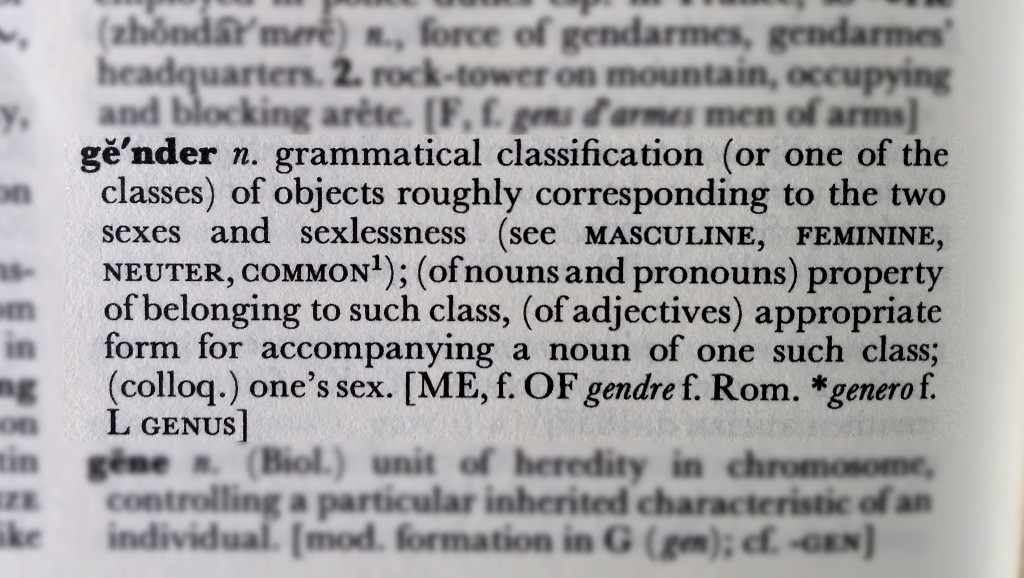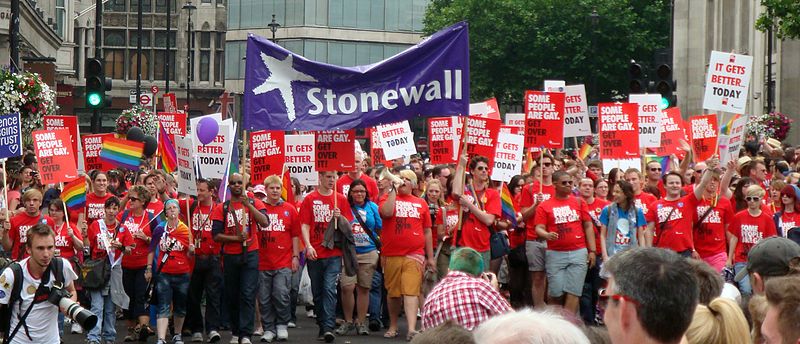- Banning Conversion Therapy Submissions - February 13, 2022
- The Council of Europe Problem - February 12, 2022
- The Trial Court and Gender Theory - January 3, 2022
…or How Stonewall Literally Denies the Existence of Trans People
We see a lot of media coverage of ‘trans issues’, lots of sloganeering like ‘trans lives matter’ and ‘trans rights are human rights’, but what exactly is ‘trans’? What does it mean, really?
Stonewall – the UK organisation which started out campaigning for LGB rights has been at the forefront of adding the T (for trans) to make their cause about LGBT.
So they’re the experts, right? Let’s see what they say:
Trans – An umbrella term to describe people whose gender is not the same as, or does not sit comfortably with, the sex they were assigned at birth. Transpeople may describe themselves using one or more of a wide variety of terms, including but not limited to, transgender, transsexual, gender-queer, genderfluid, non-binary, gender-variant, crossdresser, genderless, agender, nongender, third gender, bi-gender, trans man, trans woman, trans masculine, transfeminine, and neutrois.
Stonewall – definition of trans
The second half of this statement covers what transpeople might describe themselves as, so if we accept that people have the right to describe themselves as they see fit, we can leave that part as uncontentious.
So, now we are left with:
An umbrella term to describe people whose gender is not the same as, or does not sit comfortably with, the sex they were assigned at birth.
What do they mean by gender? Does everyone have a gender, or just some people?
Let’s check the dictionary:

Gender is a word used in the field of linguistics to describe pieces of grammar that are loosely associated with being masculine, feminine or neuter.
Great! That’s what we all knew, it meant.
Also, (colloquially), one’s sex.
We know that, too, right. Some people are a bit too prudish to use the word sex, so they use the word gender instead. But that is only a colloquialism, so it wouldn’t be used in any formal or academic writing.
And anyway, if it does mean sex, then Stonewall means:
An umbrella term to describe people whose sex is not the same as, or does not sit comfortably with, the sex they were assigned at birth.
Let’s try this one for size.
Is your sex ‘not the same as’ the sex you were assigned at birth?
Well if you are reading this, then you know your sex. You might well have even used it for recreation or procreation. Your sex is which one of two classes of human you belong to – the class that is equipped to produce the large gamete (egg) is female, and the class that is equipped to produce the small gamete (sperm) is male. In humans, sex is immutable – it cannot be changed.
So, now we need to know what sex you were ‘assigned’ at birth. We have conducted extensive research and have found absolutely nobody who was assigned a sex at birth. The general consensus is that sex is determined when the egg is fertilised by the sperm and identified sometime thereafter, with birth being the most common moment sex is observed. Moreover, if anybody was assigned a sex at birth that was different to their actual sex, then they could just reject any such assignment. Sex assigned at birth is not recorded anywhere, it is a made-up idea. It is your actual sex which is recorded on your birth certificate and passport (unless you get them changed, which, despite the immutability of sex, you can do in jurisdictions which have accepted the idea that gender is equivalent to sex on some, yet to be scientifically established, level).
From this analysis, it is possible to draw two hypothetical conclusions from Stonewall’s definition of trans.
- Stonewall’s definition of trans is wrong
- There are no transpeople
So which is it?
If Stonewall’s definition of trans is correct, then it literally denies the existence of transpeople. Note the use of the word literally here, it means ‘the exact interpretation of the words’ rather than the colloquial use as a mode of exaggeration.
Also, there are people who describe themselves as trans. So let’s accept that transpeople exist.
That leaves only one remaining conclusion. Stonewall’s definition of trans is wrong.
Maybe, they are not the experts in transpeople that they set themselves up to be.
Previously, we have accepted that people can describe themselves how they want, so why don’t we ask some transpeople what the word means to them?
Setting aside the first response ‘anyone who says they are’ – with the response that we are seeking a non-circular, unambiguous definition.
The first was a simple ‘transsexual’ – those answering in that manner had as little idea as to what transgender meant as the rest of the world. The Oxford English Dictionary defines transsexual as somebody who has the physical characteristics of one sex and the psychological characteristics of the other. Exploring the psychological characteristics of a sex sounds like it has all the potential of a long and tortuous journey through a deep and complex and dark rabbit hole. Let’s not go there. Instead we shall remind ourselves that those who write dictionaries are etymologists and lexicographers, and not psychologists; thankfully. We know the new breed of trans people do not generally refer to themselves as transsexual. What of them?
This is when we start going around in circles. A lot. Until one is thoroughly dizzy – and one suspects that could be the intention. Bamboozlement, discombobulation, and obfuscation do seem to come naturally to those promoting this new gender ideology.
The circle was always the same – the first half of this article – where we start with the Stonewall definition of trans and finish with Stonewall either erasing trans people or being wrong.
Except one. On one occasion, gender was not conflated with sex. It was said to mean ‘gender identity’.
We could, then propose a simpler, clearer definition:
people whose gender identity is not the same as, or does not sit comfortably with, their sex
The concept of gender identity has been heavily promoted by the United Nations. The UN is an organisation which is accepted by nations across the world as being the arbiter of what is good national practice.
There is a big debate to be had as to whether it still deserves this status, but it has a noble history especially in the production of The Universal Declaration of Human Rights.
The United Nations defines gender identity thus:
Gender identity is defined as a person’s internal, deeply felt sense of being male or female or something other or in between. A person’s gender identity may or may not correspond with their sex.
UN Human Rights Commission, 2008
So, it is a feeling.
The United Nations and Stonewall and legions of other Alphabetti Spaghetti organisations are seeking to enshrine a feeling in every nation’s laws.
We are getting somewhere, though, we have now got a distilled definition of trans:
People who have an internal, deeply felt sense of being different from, or uncomfortable with, their sex.
It is impossible to change one’s sex. One can change one’s feelings. Cheer up!
Why are governments, at the behest of the United Nations, seeking to protect these feelings in law?
Why are organisations championing the largely irreversible medical alteration of secondary sex characteristics to align with something as vague and capricious as a feeling?
Why do people who have these feelings deserve extra protections in law?
I feel exasperated – where are the extra rights for the exasperated?

